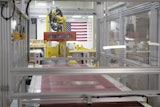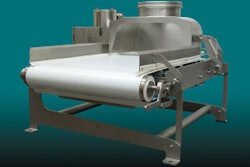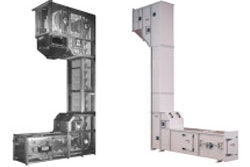Originally run on the RFID Network.
It may be time to think or even rethink about that delicious Kobe beef burger you recently ate. There’s a problem you see. The problem is not that it isn’t on the menu, it’s on plenty of menus, it is widely advertised throughout the whole of the United States. The problem is Kobe beef is not available in America — at all — full stop. Kobe beef is produced in the Hyogo prefecture in Japan and is available in and only in Japan and Macau. Sadly this means that whatever it was you ate, the one thing it was not is Kobe beef. In fact since the outbreak of mad cow disease in Japan in 2010 no Japanese beef whatsoever has been allowed into the U.S. You might be feeling a bit angry right now so how did this situation come about?
We have to go back to the year 1891 where every first world country in the world signed the Treaty of Madrid. Every country that is except the U.S.A. The purpose of the Treaty of Madrid was to protect products that were produced in environments that were especially favorable to a specific product and therefore of the highest quality. There are many examples, French Champagne, Italys Parmigiana Cheese, Greeces Kalamata olives and of course Kobe Beef. The European Union on its own has 600 geographically designated products it protects under law, almost none of which the U.S. Government recognizes. Under U.S. law all these products are not protected at all. There is no protection for the trademark and thus American producers are allowed to produce their own brand of Kobe beef or French Champagne. Effectively they have stolen the brand and produced counterfeits.
The reason of course they choose to steal the brand is to make profit – and under U.S law that’s ok. It is legal so why shouldn’t they. The reason for the non-signing is simple - to protect and favor American production. And here it starts to get a bit murky. There are questions. Is it morally or ethically correct? Is there something wrong with American beef or American wine? Is it right for producers to profit from someone else’s hard work? In the case of Kobe beef the reason for its popularity is simply fashion. In Japan, Kobe is not even regarded as the best beef available but in America Kobe beef is going through a popularity fad, therefore anything with a Kobe label is in high demand and commands a price premium. Profit, transparency, memories of Enron and WorldCom.
So here’s the real issue. You, the consumer, have not got the faintest idea where your food comes from. American law makes it legal for me to sell you a delicious Kobe beef burger washed down by a glass of French Champagne. Unfortunately, (or perhaps not unfortunately because there is nothing wrong with American products) you just ate some delicious Angus beef produced in Washington State and swilled it down with a glass of Californian Champagne. The problem is by law producers and manufacturers are allowed to confuse you by calling their product Kobe beef or French Champagne. With no trademark protection (Kobe beef, Kobe meat and Kobe cattle are patented trademarks in Japan) allowed to these foreign producers American producers and manufacturers can label their product as they wish and unless you have a lifetime or 2 to spare you will probably never know.
So is it right for you to be duped like this. My opinion is it is not. While it is legal it is not morally or ethically correct. In many cases you are paying a premium due to misleading information and non-transparent labeling. The U.S. Government is not it appears going to come to your aid. They have steadfastly stood by their 1891 decision not to sign or support the Madrid Treaty. That was 121 years ago and in spite of the fact that every other first world country has signed this Treaty the U.S Government has not and probably will not. The Treaty has been revised many times and in every case the U.S. Government has steadfastly refused to become a signatory. At the expense of the rest of the world and the best of the world, and at the expense of you – the American consumer being kept in the dark as to what it is you are buying. It’s great for American manufacturers and producers and it is even great for employment but it is not so great for the consumer or the foreign producers. And we are all consumers. A good question here might well be who is influencing the Government to make this stand? Why is the Government allowing the legitimization of counterfeits whilst at the same time coming down like a ton of bricks on any attempt to pirate music, films, technology and software? Are the scales of justice and truth yet again tipped in the favor of the powerful?
If there is to be a solution to this anomaly perhaps it is in your hands, or in the hands of technology. As a consumer you surely want to know what you are buying, you also want to know the labeling and advertising surrounding your purchase are true and correct. You also want to know that the product is fit for purpose. That is, it is fresh, has been handled correctly and is in good condition whether it be to consume or to use. The examples above are just that - examples. They are but the tip of a Titanic sized iceberg.
The solution: RFID (Radio Frequency Identification) tags can provide the solution to the issue of knowing exactly what you are buying and whether it is fit for purpose. RFID tags have many other positive benefits for consumers, producers, and manufacturers alike. RFID tags provide transparency. Let’s continue to work on cattle – cattle transparency.
RFID tags store information about what you’re buying and this information can be made available to you – the consumer. They can track and trace the entire history of, for example, a cow. You can know the cow’s date of birth, where it was born, where it was raised, what vaccinations the cow has had, a history of any diseases, when it was harvested and where it was harvested. You can know the entire life cycle of the cow and after processing you have knowledge of how it was handled, whether it was kept at appropriate temperature and the time span between the slaughter of the cow and the present point in time.
This is powerfully positive stuff and even the Government has encouraged it. In 2004 as a response to the first ever case of mad cow disease in the U.S.A. the American Government requested beef farmers to use EID (Electronic Identification) tags on all cattle. Unfortunately it was not mandated and only a small proportion of beef farmers responded. The main reasons were the cost and the products available at that time did not work very well. In addition there was concern amongst the beef farmers that other people may be able to access confidential information.
We are now into the 2nd generation of tags. A modern tag is relatively inexpensive, the average cost is only $3.49. The producer has control over who sees what in terms of the information stored within and it is considerably more user friendly. You can for example identify hundreds of animals per minute and from further away. First generation readers had to be within 2 inches of the animal’s tag, 2nd generation tags allow distances of up to 4 meters. And there’s more. In the case of an outbreak of disease, for example mad cow disease, the tag will give you the full traceability of any animal through a GPS history. Where it has been and therefore what other animals are likely to be affected. And it does so very quickly as against the current system of tracking back. If the animal can be traced the disease can be traced. You will know whether there is any chance of your proposed purchase being infected.
OK, so we now know a lot more about cows. This opinion is not just about cows, as mentioned earlier Kobe beef and French Champagne are just examples, just the tip of the iceberg. This article is about you – the consumer. As a consumer, a buyer of goods you have the right and often a need to know what you are buying. It actually has nothing whatsoever to do with cows.
The world is continuously getting smaller. Manufacturer and producer markets are no longer localized. Markets for many products are worldwide and in many cases, particularly food there needs to be controls in place that allow you to know not only that the product is true to label but also that it is fit to consume. For example, food often requires temperature control to maintain its peak condition. Fish needs to be refrigerated immediately after being caught. All perishable food needs to be temperature controlled. Whilst many fruits and vegetables can only be grown seasonally in any given area there is demand all year round therefore many fruits and vegetables now travel long distances to their markets. RFID gives you the power. It can tell you the history you need to know about what you want to buy. Whether it has been handled correctly whilst in transit and whether it is true to label.
There are benefits also for producers. Yes there is extra cost but there is also better protection against lawsuits when something goes wrong, they are better able to prove their innocence through better control over the supply chain. Insurance companies are also coming to the party with reduced premiums available for RFID tagged goods and of course the knowledge about a product is significantly enhanced and instantly available.
Globalization has in effect created a right and a need to know how our foods are grown, processed and handled throughout the supply chain. At stake is food safety, quality and integrity. There is a shift evolving in food supply chain management that involves a change in focus from responding to a problem to preventing a problem. In other words the ambulance is in the process of being relocated from the bottom of the cliff to the top. Companies need to start implementing food traceability programmes for all food products to ensure food supply is safe. RFID technology can provide that traceability. With temperature monitoring it minimizes risk – consumers and stakeholders alike can make informed decisions. Most importantly, you, the consumer will have a lot more knowledge about what you are buying. You can then make wiser and better informed decisions. With RFID, the power is in every consumer’s hands.























